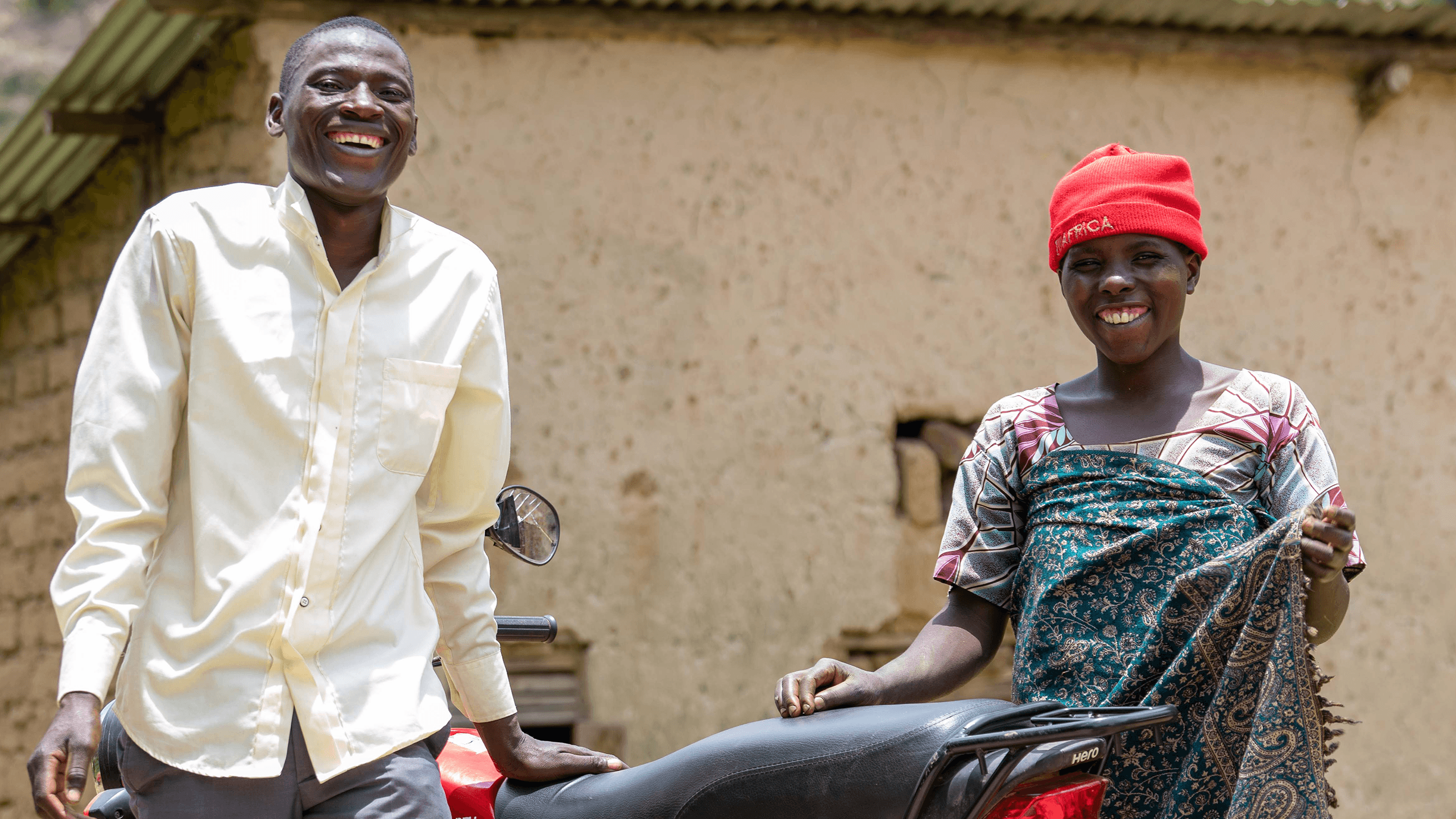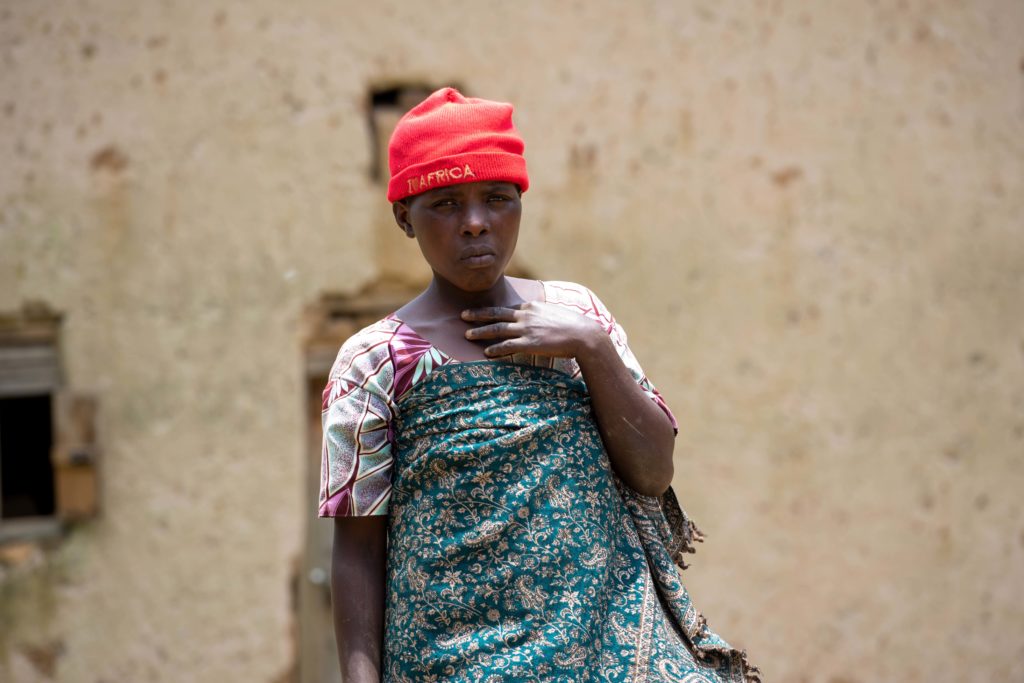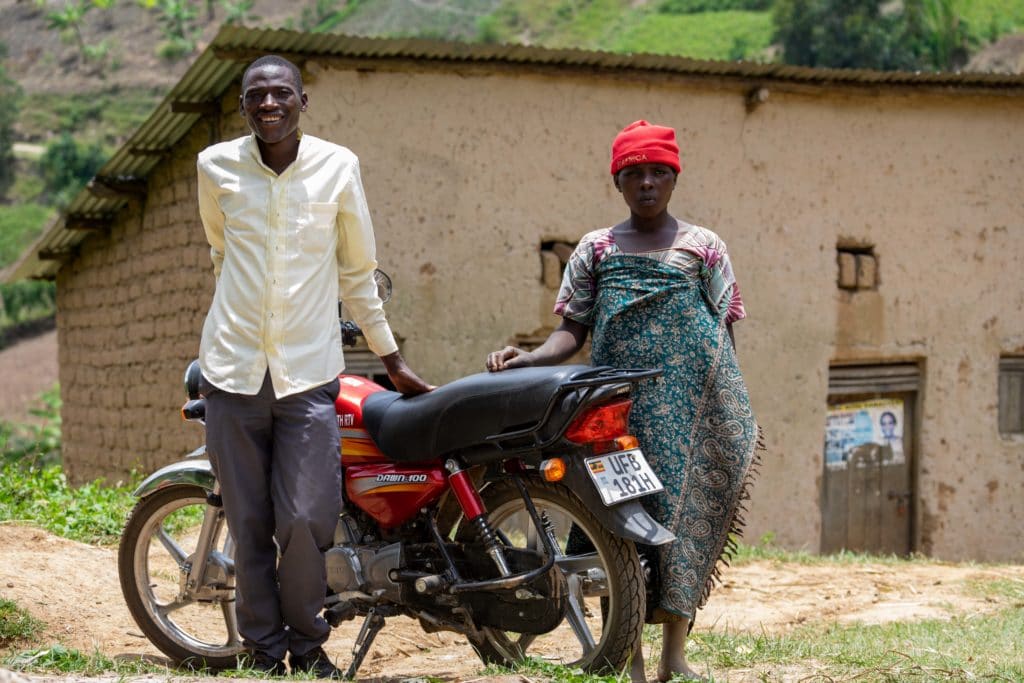From Makeshift Stretchers to Motorbike Ambulances

Jovia was home with her two kids when she felt the contractions. She was in labor and her third baby was ready to arrive in this world.
Jovia lives in Bukerahi village, a last-mile community in Kisoro district in south western Uganda. The area is surrounded by hills and crater lakes and the topography of the region presents incredibly difficult driving conditions, which can be a significant challenge not only for the distribution of health services but also for the community to access affordable transport.
In the past, Jovia would have had to be carried by young people in her community on a makeshift stretcher and commute for long hours in her condition. This was before Raising The Village partnered with the communities to acquire motorbike ambulances to provide essential ambulatory support for accessing emergency healthcare. As a reminder of the progress they have made, and the hardships they have survived in the past, the motorbike ambulance drivers proudly call themselves the “Stretcher Group”.

“I contacted the Stretcher Group who handle the motorbike ambulance in my community. They picked me up from home to the hospital and back for only UGX2,000 ($0.5) instead of UGX 10,000 ($2.8) which other motorcycles would usually charge,” Jovia explained.
This time, Jovia had a choice. She was able to call Kodogo, a motorbike ambulance driver, to transport her safely to urgent care for the delivery.
The small fee that the Stretcher Group charges for the motorbike ambulance services is used to pay for gas, maintenance, and repair to ensure that the service is sustainable for years to come. The initiative is cared for by the community, for the community.

“It was very challenging to carry patients on a stretcher made of poles from the village all the way to the nearest health center. Now we have motorbikes stationed at different villages for any medical care required,” Kadogo mentioned.
The motor-bike ambulances are also used to transport ailing community members to the health outreaches organized by RTV and the local government as part of our programs for regular health check-ups.
This dedicated and affordable service makes it possible for members of the community to access health services in times of need, reduces the safety risk to women and children associated with long travel routes, and significantly cuts down the number of people and amount of time required to transport a patient.
Thanks to the Stretcher Group, Jovia did not have to use a stretcher this time and was able to deliver a healthy baby and return to her family safely.

